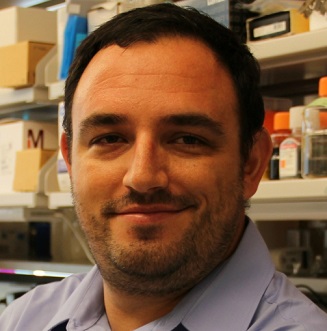
In a proof-of-concept study, researchers led by McGowan Institute for Regenerative Medicine affiliated faculty member Riccardo Gottardi, PhD, Assistant Professor of Pediatrics and head of the Bioengineering and Biomaterials Laboratory at the Children’s Hospital of Philadelphia (CHOP), have created a coating that can be applied to endotracheal tubes and release antimicrobial peptides that target infectious bacteria with specificity. The innovation could reduce upper-airway bacterial inflammation during intubation, a situation that can lead to chronic inflammation and a condition called subglottic stenosis, the narrowing of the airway by an accumulation of scar tissue. The findings were published in the journal The Laryngoscope.
“We have created a novel device to modulate the upper-airway microbiome, which could be used to prevent bacterial infections during intubation and help prevent subglottic stenosis and other airway diseases,” said senior study author Dr. Gottardi. “Not only does this technology work predictably and continuously over the normal duration of chronically intubated patients, but it is also fast and easy to produce and could easily be modulated to target any bacteria of interest.”
Recent studies have shown that the endotracheal microbiome of intubated patients with subglottic stenosis is unbalanced. However, addressing the overgrowth of certain bacteria with conventional antibiotics is not ideal, as their use can disrupt the balance of both “good” and “bad” bacteria, while also causing antimicrobial resistance.
Instead, the investigators explored the use of antimicrobial peptides (AMPs), which are small proteins that destabilize bacterial membranes, causing bacterial cells to fall apart and die. This mechanism of action allows them to target specific bacteria and makes them unlikely to promote antimicrobial resistance. Prior studies have shown that it is possible to coat endotracheal tubes with conventional antibiotics, so the research team investigated the possibility of incorporating AMPs into polymer-coated tubes to inhibit bacterial growth and modulate the upper-airway microbiome.
The researchers, led by Matthew Aronson, a graduate student in Penn Engineering’s Department of Bioengineering, tested their theory by creating a polymer coating that would release Lasioglossin-III, an AMP with broad-spectrum antibacterial activity. They found that Lasio released from coated endotracheal tubes, reached the expected effective concentration rapidly and continued to release at the same concentration for a week, which is the typical timeframe that an endotracheal is used before being changed. The investigators also tested their drug-eluting tube against airway microbes, including S. epidermidis, S. pneumoniae, and human microbiome samples and observed significant antibacterial activity, as well as prevention of bacterial adherence to the tube.
“This study shows that it is possible to create a drug-eluting endotracheal tube to prevent airway complications, which opens the door to future research on targeting specific pathogens that are responsible for laryngotracheal stenosis,” said study co-author Ian N. Jacobs, MD, Medical Director of the Center for Pediatric Airway Disorders in the Division of Otolaryngology and Endowed Chair in Pediatric Otolaryngology and Pediatric Airway Disorders at CHOP. “Moreover, the ability to purposefully select AMPs against certain microbes in the trachea and other organs could have significant implications in the prevention of specific diseases, even beyond airway disorders.”
The study was supported in part by the Ri.MED Foundation, the Children’s Hospital of Philadelphia Research Institute, the Frontier Program in Airway Disorders of the Children’s Hospital of Philadelphia, and the National Science Foundation Graduate Research Fellowship No. DGE 1845298.
Read more…
Children’s Hospital of Philadelphia News Release
Abstract (Matthew R. Aronson, Soheila Ali Akbari Ghavimi, Paul M. Gehret, Ian N. Jacobs, Riccardo Gottardi. Drug‐Eluting Endotracheal Tubes for Preventing Bacterial Inflammation in Subglottic Stenosis. The Laryngoscope, 2021.)
